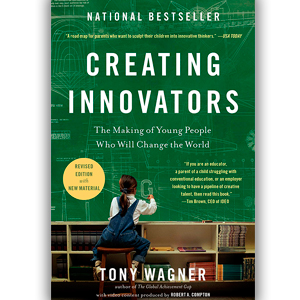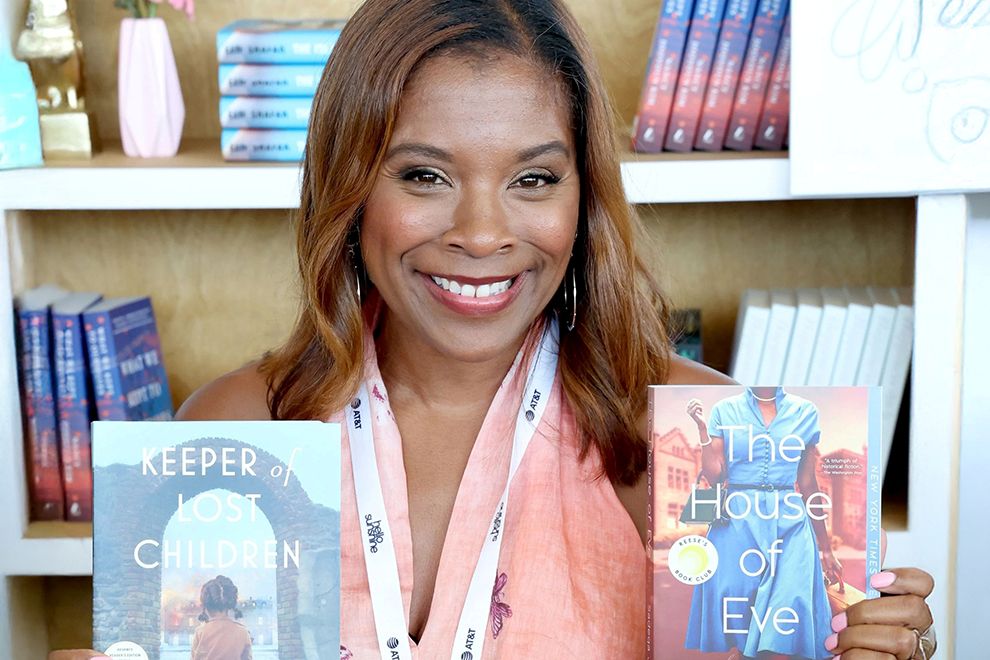 Innovation comes in many forms, according to Tony Wagner, author of Creating Innovators. Therefore, in his latest book he attempts to give parents a peek into a variety of twenty-something innovators childhood’s so similar behaviors can be encouraged in the next generation. Quoting countless industry experts and building on his previous book, The Global Achievement Gap, Wagner begins by outlining what he calls Seven Survival Skills:
Innovation comes in many forms, according to Tony Wagner, author of Creating Innovators. Therefore, in his latest book he attempts to give parents a peek into a variety of twenty-something innovators childhood’s so similar behaviors can be encouraged in the next generation. Quoting countless industry experts and building on his previous book, The Global Achievement Gap, Wagner begins by outlining what he calls Seven Survival Skills:
- Critical thinking and problem solving
- Collaboration across networks and leading by influence
- Agility and adaptability
- Initiative and entrepreneurship
- Accessing and analyzing information
- Effective oral and written communication
- Curiosity and imagination
Then, Wagner gives parents a primer on innovation, explaining the importance of establishing it as a habit by asking good questions and developing a desire to understand things more deeply. Unfortunately, this is something that is often “educated out of us,” according to Sir Ken Robinson, author of The Element and Out of Our Minds, which I blogged about a couple of years ago on PBB (Read Blog One and/or Blog Two). Wagner offers up the easily identifiable example of the preschooler, who won’t stop asking questions, and compares her to the high school student, who fails to show inquisitiveness. And suddenly the point that creativity is a habit that can be discouraged is crystal clear.
What can parents do about this? Wagner stresses the need for action and experimentation. Of course, Wagner acknowledges, “You cannot innovate from nothing. You must have expertise;” however, he maintains while acquiring new knowledge is crucial, without creative-thinking skills, students won’t “ask the right questions, make connections, observe, empathize, collaborate, and experiment.” Therefore, creating innovators requires a delicate balance of expertise, creative-thinking skills, and motivation, which is why teaching to the test is so ineffective in the long run.
Wagner claims the one thing that emerged most frequently in his interviews with innovators was the desire to “make a difference.” In order to do so, young innovators, according to Wagner, follow a progress from play to passion to purpose. “Their play was far less structured than most children’s, and they had opportunities to explore, experiment, and discover through trial and error – to take risks and fall down,” Wagner argues. Therefore, if you’re interested in creating innovators, you must do what most modern parents struggle with – give them free time to fail. Wagner believes that if you take the less conventional path as parent, teacher, mentor, you’ll be more likely to raise a child who thinks about things differently as well. If it helps, draw inspiration from some this “Famous Failures” video – Walt Disney was fired from his job as a journalist for “lacking imagination” and Oprah Winfrey was fired from her job as a news anchor for getting too emotionally invested.
In Creating Innovators, Wagner uses anecdotes to illustrate to parents what this creative approach to parenting looks like in day-to-day life. For example, twenty-nine year old Kirk Phelps was both a high school and college (Stanford) dropout, who came to work on the first iPhone for Apple. Apparently, while his parents gave him clear rules related to reading time, screen time, and bedtime, Wagner explains, “They were adamant about children using playtime as an unstructured opportunity to discover, explore, and experiment.” Translation: Unlike the rest of the moms in their suburban neighborhood, his chose not to “fill up her children’s out-of-school time with additional classes and lessons, preferring that they have more unsupervised time playing outside.” Wagner maintains Phelps’s mother believed he needed to learn to entertain himself, whether it be with LEGO blocks or climbing a tree. Ultimately, despite the risks parents typically associate with free-play, Phelps discovered his passion for science, which ultimately gave him a purpose in life.
So with summer on the horizon, try to resist the temptation to schedule activities for every week of your child’s vacation. Set some screen, reading, and bedtime boundaries. Read my posts on The Overscheduled Child if you need help (Blog One, Blog Two, Blog Three, and Blog Four.) Then focus on discovery through trial and error. Like Wagner explains, for Phelps’s parents, “Learning was not a means to an end – a way to get into a good school or job – it was an end in itself.” Therefore, start creating your innovator by keeping that end in mind.
Follow @WinterhalterV on Twitter for updates on blog posts or like Parenting by the Book on Facebook.




